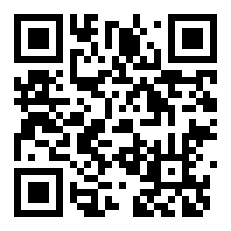Assessment of Self-Medication Practices among Cleaners in a Nigerian University Community
Keywords:
Nigerian University Community, Janitors, Cleaners, Self-MedicationAbstract
Background: The use of medications without a doctor's prescription is a common practice, especially in developing countries where medicines are available without prescription. Cleaners, usually referred to as janitors or custodial workers, help keep institutions, particularly colleges, clean and hygienic. They frequently come in contact with a variety of environmental and occupational risks, which could lead to minor illnesses or injuries. They are mostly low-income earners and they often resort to self-medication to treat their health problems without consulting a physician. This study aimed to evaluate the practice of self-medication among cleaners in a university community.
Materials and Methods: Across-sectional survey of cleaners at Obafemi Awolowo University, Ile-Ife was carried out. A semi-structured questionnaire was used to gather data from the respondents. The questionnaire was administered to the respondents during a health talk organized for the cleaners using total sampling. Data gathered was summarized using descriptive statistics such as frequencies and percentages.
Results: The Majority (80.6%) of the respondents practiced self-medication because they considered their conditions to be minor (43.6%). Analgesics (55.8%) were the most commonly self-medicated medicine which they used to manage pains (54.8%) and headaches (20.1%). More than half (51.8%) of cleaners obtained these medicines from patent medicine vendors because of their proximity (44.1%).
Conclusion: The practice of self-medication was prevalent among the cleaners. They practiced selfmedication because they considered their medical conditions to be minor. Analgesics were the most commonly used medicines and were mostly obtained from patent medicine vendors.
References
Kumar N, Kanchan T, Unnikrishnan B, Rekha T, Mithra P, Kulkarni V, Papanna MK, Holla R, Uppal S. Perceptions and practices of self-medication among medical students in coastal South India. PLoS One. 2013 Aug 28; 8(8): e72247. doi:
1371/journal.pone.0072247.
Limaye D, Limaye V, Krause G, Fortwengel G. A systematic review of the literature on survey questionnaires to assess self-medication practices. Int J Community Med Public Health [Internet]. 2017 Jul. 22 [cited 2024 Apr. 15];4(8):2620-31. Available from:
https://www.ijcmph.com/index.php/ijcmph/article/view/1731
Shafie M, Eyasu M, Muzeyin K, Worku Y, MartínAragón S. Prevalence and determinants of selfmedication practice among selected households in Addis Ababa community. PLoS One. 2018 Mar 26; 13(3): e0194122. doi: 10.1371/journal.pone.0194122.
Lee CH, Chang FC, Hsu SD, Chi HY, Huang LJ, Yeh MK. Inappropriate self-medication among adolescents and its association with lower
medication literacy and substance use. PLoS One. 2017 Dec 14; 12(12): e0189199. doi:
1371/journal.pone.0189199.
Jirjees F, Ahmed M, Sayyar S, Amini M, AlObaidi H, Aldeyab MA. Self-Medication with Antibiotics during COVID-19 in the Eastern
Mediterranean Region Countries: A Review. Antibiotics (Basel). 2022 May 30;11(6):733. doi: 10.3390/antibiotics11060733.
Smilie KD. Progressive paradox: the origin story of school janitors in the United States. History of Education.2022;51(6):807–26.
Osemene K and Lamikanra A. A (2012). Study of the Prevalence of Self-Medication Practice among University Students in Southwestern Nigeria. Trop J Pharm Res, August 2012;11 (4):684-9. DOI:10.4314/tjpr.v11i4.21.
Jakaria M, Hasant A, Tarek M, Islam M, Zaman R, Parvez M, et al (2017). Evaluation of Self Medication among Students from Different
Universities in Chittagong, Bangladesh. J Medicine. 2017; 18(1): 15 – 20.
DOI:10.3329/jom.v18i1.31171
Babalola T. M., Omoteso B. A., and Eni J. O (2019). Social Support as a Correlate of Mental Health Status of Undergraduate Students of
Obafemi Awolowo Universit, Ile-Ife, Osun State. American Journal of Creative Education. 2019;2(2):93-100.DOI:10.20448/815.22.93.100.
Dube A and Lindner A. City Limits: What Do Local-Area Minimum Wages Do? Journal of Economic Perspectives 2021;35(1):27–50. DOI:
1257/jep.35.1.27
Kawuma R, Chimukuche RS, Francis SC, Seeley J, Weiss HA. Knowledge, use (misuse) and perceptions of over-the-counter analgesics in subSaharan Africa: a scoping review. Glob Health Action. 2021 Jan 1;14(1):1955476. doi: 10.1080/16549716.2021.1955476.
Esan DT, Fasoro AA, Odesanya OE, Esan TO, Ojo EF, Faeji CO. Assessment of Self-Medication Practices and Its Associated Factors among Undergraduates of a Private University in Nigeria. J Environ Public Health. 2018 Dec 20;2018:5439079. doi: 10.1155/2018/5439079.
Omolase CO, Adeleke OE, Afolabi AO, Afolabi OT. Self medication amongst general outpatients in a nigerian community hospital. Ann Ib Postgrad Med. 2007 Dec; 5(2): 64- 7. doi: 10.4314/aipm.v5i2.64032.
Bassi P.U., Osakwe A.I., Builders M., Ettebong E, Kola G., Binga, B. and Oreagbai I. Prevalence and Determinants of Self-Medication Practices among Nigerian. African Journal of Health Sciences. 2021. 34(5):634-649. (Available at https://www.ajol.info/index.php/ajhs/article/view st /218297/205886. Accessed on 1 February, 2024).
Akande-Sholabi W, Ajamu AT, Adisa R. Prevalence, knowledge and perception of selfmedication practice among undergraduate healthcare students. J Pharm Policy Pract. 2021 Jun 10;14(1):49. doi: 10.1186/s40545-021-00331-w.
Manik MIN, Khan A, Ali MH, Zobayed A, Islam MM. Survey on common trends for nonprescribed medication use among the young
generation in Dhaka, Bangladesh: A cross sectional study. Int J Community Med Public Health [Internet]. 2021 Feb. 24 [cited 2024 Apr.
; 8(3): 1104-9. Available from: https://www.ijcmph.com/index.php/ijcmph/article/view/7484
Mariappan VA, Ananthan VA. Self-medication practices in a rural population in Tamil Nadu. International Journal of Community Medicine and Public Health 2020; 7: 5021 - 6. DOI: https://d x. doi. org/10.18203/2394-6040.ijcmph20205179
Edet CK, Wegbom AI, Samuel KG, Sapira-Ordu L, Jaja ID, Ene-Peter J, Harold I, Onyema C, Pepple BG, Fagbamigbe AF. Prevalence and
Factors Influencing Self-Medication among Pregnant Women Attending Antenatal Clinics in Urban Tertiary Hospitals in Nigeria. BioMed.
; 3(1): 166 - 176. https://doi.org/10.3390/biomed3010014.
Mohanty PC, Sharma K. Healthcare Access and Perception on Traditional Medicine: Evidence from Vulnerable Sections of India. 2023.
Authore a. [cited 2024 Jan 30]. DOI: 10.22541/au.169640104.45891422/v1Available from: https://www.authorea.com/users/671062/articles/670756-healthcare-access-and-perception-ontraditional-medicine-evidence-from-vulnerable-sections-ofindia?commit=d2c2f84d986a7dbfea38b6faa750727bf3da1466
Downloads
Views | PDF Downloads:
1074
/ 297
Published
How to Cite
Issue
Section
License
Copyright (c) 2024 The Nigerian Journal of Pharmacy

This work is licensed under a Creative Commons Attribution-NonCommercial 4.0 International License.



